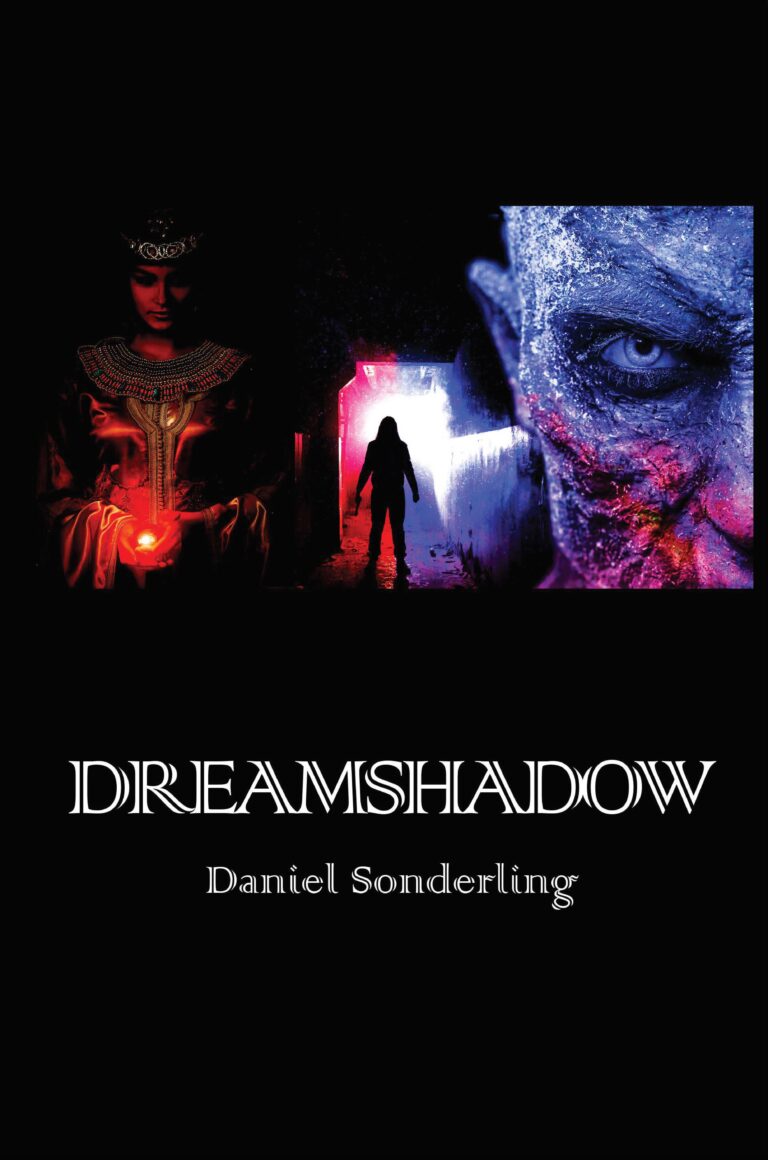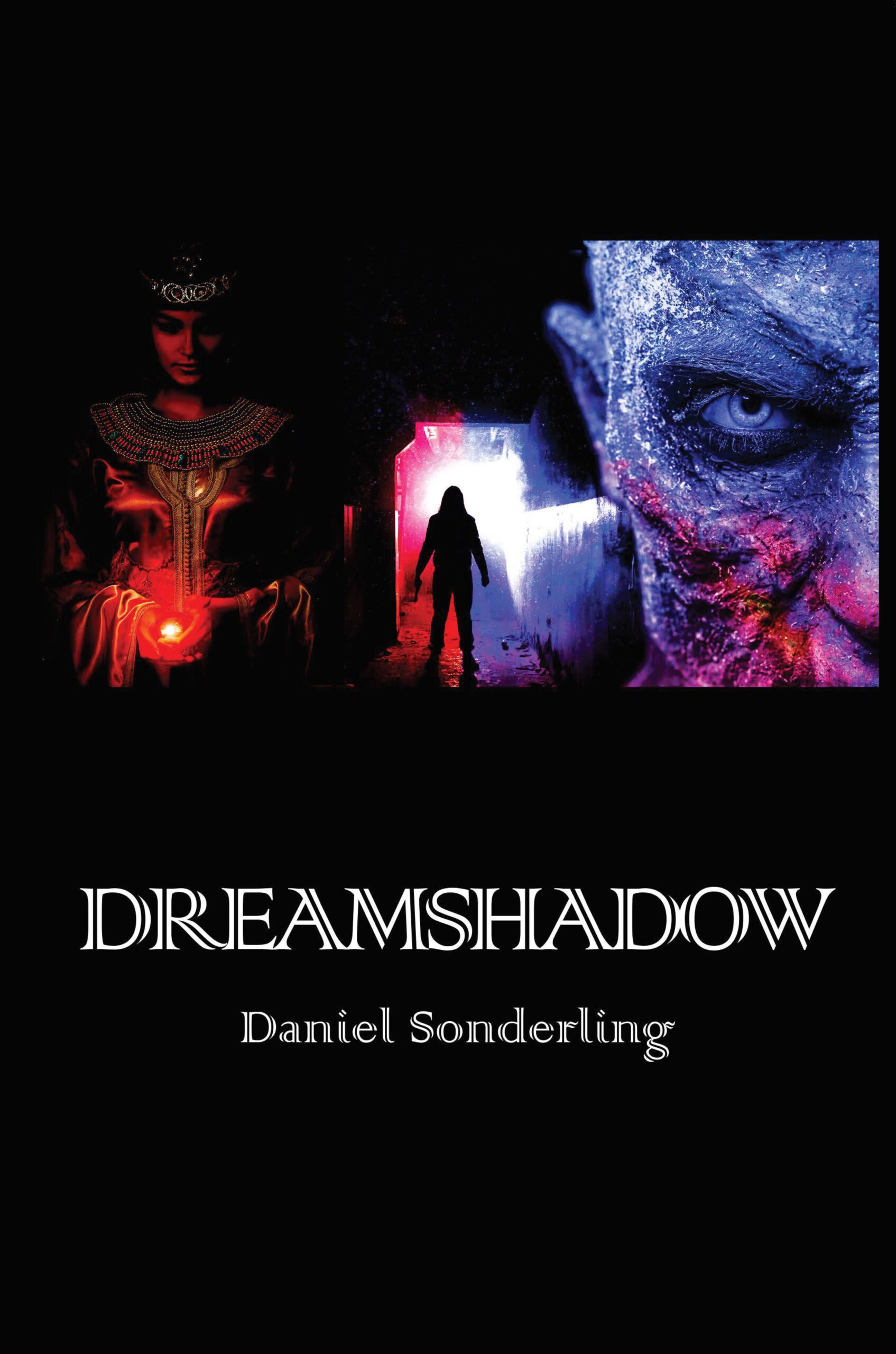Epic in scope, Daniel Sonderling’s DREAMSHADOW is a high-concept deep-dive into a massive, layered universe through the eyes of a reluctant hero bent on redemption. The story ultimately centers on Marcus, a lowly ‘indentured’ toiling away in the unforgiving mines of BáHür, whose plans for escape are thwarted by the murder of his mother. Consumed with guilt, a bruised, battered, and heartbroken Marcus goes on the run and eventually finds his way to the Valley of the Kings. There, he is ultimately saved by the Keshu, a band of otherworldly mystics led by the fierce, imposing Takuri. With little in the way of options, Marcus joins with Lord Takuri and his followers, traveling across space and time itself. Along the way, our intrepid hero develops an adversarial relationship with Takuri, meets a kindred spirit, and eventually encounters an ancient god that makes an offer that quickly proves too good to be true. Faced with an impossible choice, Marcus is forced to decide the value of redemption. What follows is a twisted, genre-bending tale that continuously challenges the preconceived ‘rules’ governing genre fiction.
On the surface, DREAMSHADOW functions as a rewarding blend of sci-fi and horror, one that offers readers loads of action and an intriguing cast of characters all set in an expansive, well-constructed world. But between the proverbial lines, there’s a whole other level to Sonderling’s work. By skillfully interspersing philosophical observations throughout this narrative, the author adds an air of thoughtfulness to what is an otherwise action-driven story, earning massive points for concept and originality. Wisely avoiding the dreaded ‘info dump’—a momentum-sucking mistake that many a well-intentioned author has made—Sonderling slowly peels back the layers of Marcus’ reality, allowing readers to vicariously explore a massive and mysterious universe through the eyes of an inexperienced protagonist. DREAMSHADOW effortlessly shifts gears, transitioning from one genre to another at a moment’s notice. Marcus’ journey initially feels like it’s going to play out as a traditional ‘might & magic’ fantasy romp, but within a few chapters, readers are introduced to a bevy of hard sci-fi elements that, while a tad derivative, succeed in giving the book a futuristic flair.
Unfortunately, DREAMSHADOW bears some of the hallmark pitfalls of a debut, self-published work, namely an excess of clunky, adjective-laden prose and numerous grammatical and formatting errors that tend to stall the story’s momentum. Additionally, the author occasionally leans a bit too heavily on established clichés and tropes—the novel fuses a myriad of elements, but there are moments where a little ‘less’ would’ve given the overall story a bit more traction. Still, there’s little here that a deep edit wouldn’t rectify, and when it counts, Sonderling delivers precisely what the story needs.
Blending elements of sci-fi, fantasy, and an occasional foray into horror, DREAMSHADOW ultimately overcomes its flaws and, in the process, delivers a fun, sometimes frightening, read that engages from the very first page and never lets go.
~James Weiskittel for IndieReader


